Shashi Kapoor: Once Upon A Time- The Film Makers
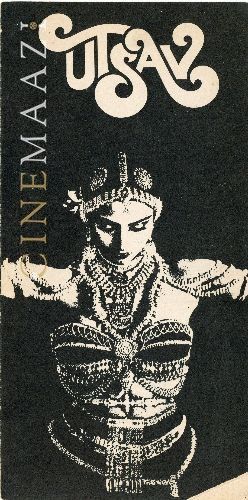
Subscribe to read full article
This section is for paid subscribers only. Our subscription is only $37/- for one full year.
You get unlimited access to all paid section and features on the website with this subscription.
Not ready for a full subscription?
You can access this article for $2, and have it saved to your account for one year.
We had been toying with a few subjects but nothing seemed to work. Then one day, Pearl Padamsee called to inform that a magazine had carried Ruskin Bond's short story, Flight of Pigeons and it seemed promising. Immediately, we rushed for the copy, and Voila, our script was born. The screenplay, cast, locations were ready, except the title. We felt frustrated because, without a title, the publicity of the film and other relevant formalities got delayed. Then one afternoon, sitting in the office, suddenly both Shabana Azmi and Satyadev Dubey came up with a title. They spoke almost together. "Junoon," they said, meaning `Obsession.' The story was about a pathan's obsession with a phirang girl (Nafisa Ali).
On, the night of the premiere, the artistes were given two pigeons in their hands as they came onto the stage. It was the distributors' idea and it worked. Later in the night, at the cocktails, Daboo said, "Shashi Kapoor works in 500 films so that he can produce one good film. So, who are these people to criticise Shashi Kapoor?"
Slowly, as my production company strengthened, the criticism and the flak took a backseat. After Junoon, came Kalyug (1980), close on the heels of which followed 36 Chowringhee Lane (1981).
I was against launching my own son and so waited with Vijeta (1982) in the planning, for Ahista Ahista (1981) to be released. Nobody was as excited about Kunal Kapoor coming into films as his sister Sanjana. On her way from school, she would buy all the magazines available, run through the pages only to check if there was a picture or a line on her brother. Even if there was a sentence mentioning Kunal, she'd come to him and say, "Look Kunuu, what they have said about you?"
Kunnu, I observed, felt confused and anxious about his career, kind of directionless. Not sure if his roots were in Hindi films, he went through moments of deep anguish. I knew how it felt, having been through it myself but these are moments when nobody can help you. Not even your own father. Everyone has to bear his own cross, work out his own equations. Some take longer. But we all have to do it. I did too and so did my father. The film industry is a cruel teacher. It has a harsh way of tutoring you. Still, when Kunal looked exceptionally low, I talked to him... exactly the way my father had talked to me. I patted him on his back and said those miracle words that never fail, "it will all be okay." And he smiled at me, his eyes suddenly full of hope, exactly the way my eyes must have shined when my father reassured me.
Utsav (1984) has very painful memories for me. Financially, I was doomed because the film went mercilessly overbudget. And emotionally, I got scattered with Jennifer's illness. We suspected it was cancer with the first check-up and with every new check-up... every fresh visit to the doctor... the hospitalisation formalities and the operations... the pain became unbearable.
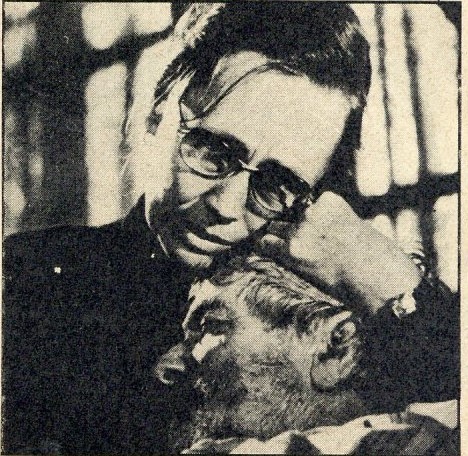
On the morning of that September 7, in 1983, Jennifer's father, Godfrey Kendall got up early. His daughter had told him that she wanted to be the first one to wish him on his birthday. "Don't be late," she said. "I don't have much time." How right she was. After she wished her father, Jennifer went to sleep. Tired, pale, she opened her eyes unconsciously in between, but never really woke up. It was all so strange. We all knew it was coming... the doctors had warned us to be prepared for it to happen at any time, and yet when it did, none of us could take it.
Looking back, I feel it was an unusual morning. We had our morning tea, and while I read the newspaper to her, she stared out of the window. Even to her father, she said, "my last greetings," and then coiled into her bed. How uncanny that she should die on her father's birthday. "My birthday will always be a sad one now," my father-in-law said, on the eve of the funeral, when the family gathered in black suits for drinks and dinner. Strange customs, but then that's how Britishers complete funeral rituals. Five days later, we went through the formalities in Bombay again. This time rituals were performed according to Hindu rites. Her body was buried in England but Bhabhiji organised a havan...and later a chautha... For a month, people, telegrams, letters, phone- calls poured in. Everyone said the same things, asked the same questions, and yet nothing that anybody seemed to say, could take the burden off the chest.
In the meanwhile, Utsav had released and bombed. My liabilities were so many that I had to consider selling the flat. But when the time came for negotiations, Kunal put his foot down. "Mom's soul is in here. Let's look for alternatives." Alternatives were found but smaller luxuries still needed to be sacrificed. I sold my Mercedes and got an ambassador. The upkeep of Prithvi office began to deteriorate. And so did the maintenance at home. "Home is unbearable without mummy," Kunal always said, when he didn't find Jennifer, in the house. How right he was, for suddenly, dinner-time had lost its meaning. The children kept odd hours. The servants seemed to be scattered. I became fat and disproportionate. That's not all. The daily routine became unmanageable. Jennifer managed everything so efficiently for so many years, that we had all of us, begun to take it for granted. And now suddenly, we felt crippled without her. We didn't know where the antiques were repaired, where the paintings were framed, where the laundry was sent...With an important part suddenly gone the jigsaw puzzle was left unsolved forever.
On the rakhi day, for the first time in twenty years, my friend Prayag Raj whom Jennifer tied rakhi to, did not come home. Years ago, immediately after our marriage, Prayag had come with his mother to our Matunga home.
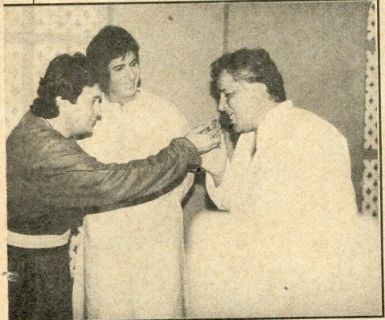
Rakshabandhan used to be a big hungama during Papaji's time. Half a dozen thalis would be clanking... dupattas floating all around... glass bangles jingling.... There was a long line for arti and abhishek and ladoos to be popped into each other's mouths. In all this madness, were two, very shy, very reserved people standing in two different corners, both rather embarrassed and intimidated by this loud exhibition of affection. My wife Jennifer and my friend, Prayag Raj. Suddenly, Chaiji caught Prayag by his hand and asked, "rakhike din tera haath khali kyon hain?" "Merit koi bahen nahin," Prayag replied. "Wo rahi teri bahen," she said pointing to Jennifer and dragged him to her. Ever since, Jennifer tied rakhi to Prayag. The two shared a bond that was independent of their relationship with me. In fact, while Prayag and I often fought, the wind of their sentiments remained untarnished. After her demise, Prayag never let anyone tie a rakhi on his wrist. "I had one sister and nobody can replace her," he says. Except for this one sentence, we've never discussed Jennifer between us.
People do, however. And strangers, mind you. The bookbinder, where she got old books bound. Our staff relatives whose family weddings she made it a point to attend. Another topic people cannot stop discussing with me is my weight. I started putting on weight for a role, thought I'd lose it as soon as the film was over. But shedding weight after 40, isn't that easy and I realised I couldn't do it. Quite frankly, I didn't even try. With the kind of roles I was playing of elder brother, uncle, father, I didn't need to. Besides, there was no incentive, no motive left any more. In the past, Jennifer kept a close watch on me. In fact, she almost starved me so that I didn't put on weight. For, with us Kapoors, we have to only smell food and we put on weight. And now suddenly, I am so overweight that I don't know where to start losing it. People often ask me, "don't you feel bad letting yourself go thus..? don't you feel bad that you were once upon a time a slim, handsome man?"
Once upon a time so many things happened. We lived in a large family in Matunga... grew up... grew famous... fell in love... had kids... our kids fell in love... got married... Things happen and then you move ahead. Life isn't a film that you can be involved in dissolves and flashbacks. I thought I'd never direct a film because I don't have the confidence to. And yet as a child, I only wanted to be a filmmaker. Ajooba (1991) has lots of things at stake. I'd be dishonest if I said I am not worried. But worrying doesn't solve anything. Success and failure happen to everyone. Even money comes and goes. I don't care if I die a pauper, as long as I am not a liability on my children. I am not afraid of being criticised. I am not afraid of dying. I am 53, old, fat, battered, still working, still smiling. One day I will die. But before I die, like my father, I too want to see the sunrise, I want to have a bath and die like a Kshatriya. Just like he did.
This article was originally published in May 1991 as the first chapter of Junio G magazine's supplementary issue- Shahsi Kapoor: Once Upon A Time. The image used has been taken from the original article and Cinemaazi archive
About the Author



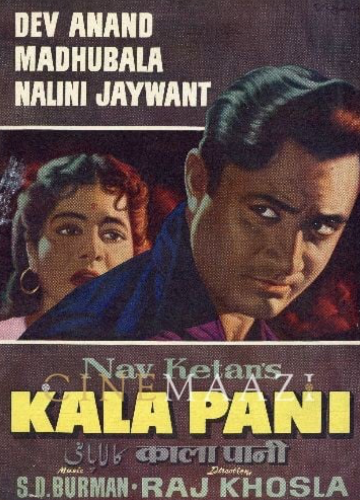
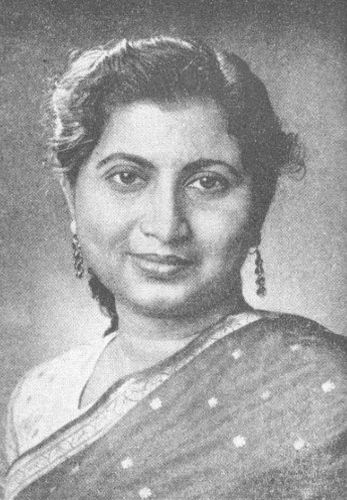
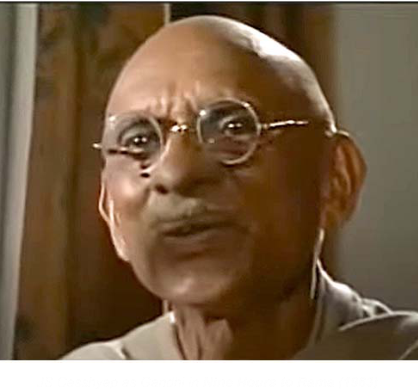
.jpg)


